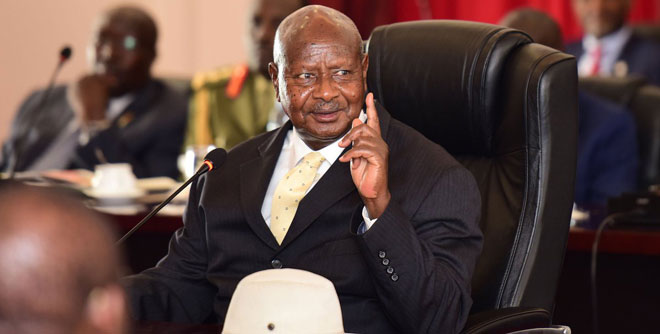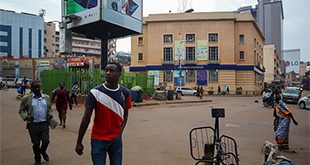
Despite these up and downs, it is not clear what Kayihura’s plan is to deal with the problem. Details remain scanty even among sources who have attended some of the meetings at Police Headquarters in Naguru.
“We have talked about operations to find those responsible for these attacks,” said one of the officers knowledgeable about the meetings, “as you saw some of them are already in our custody. These elements just wanted to spread fear. Our aim was to put an end to all this.”
The officer said the attackers appear organised and keen to create a sense of insecurity in the central region, which is the most sensitive.
He said the first sign of their organisation was the way they were identifying their victims in Greater Masaka. They kept throwing around leaflets notifying people of their impending attacks in order to spread fear, the officer said, in the meantime, they were spreading out to other parts of central region. He added that singling out politicians in the ruling party means points to political motivation.
Part of the police’s problem, the source said, is that it is clear the attackers are not one group. The police came to this conclusion after studying their different methods. While some attackers have been spreading letters before attacks, there are those who have raided people’s homes and stolen property in ordinary robberies.
Despite such analysis, however, the police still have to come up with a strategy to restore normalcy and reassure the public. Unfortunately, the crime wave could not have come at a worse time for Kayihura. His contract is up for renewal and although President Museveni has already nominated him for contract renewal, the timing of the vetting by parliament is clearly not right and Kayihura has deferred it.
It is also barely a month before a top officer, the late Assistant Inspector General of Police, Andrew Felix Kaweesi, was murdered assassination style. The March 17 attack on Kaweesi’s car, in which his driver and bodyguard were also killed by people riding on boda boda shook the nation and exposed the police’s vulnerability.
Kayihura is a taciturn, with an inscrutable face and a gift for bravado in the face of challenge. So it is difficult to see how he is coping based on body language. But sources close to him say he is fatigued. And part of the reason is that amidst the wave of criminality and Kawesi’s death, he has lost both his most trusted lieutenants and his tactical direction.
In the past, strategically, Kayihura has kept his sights on ensuring regime survival first and President Museveni has rewarded him by keeping him as head of the force for 12 years – the longest ever.
Kayihura has also had a penchant for shuffling his officers from post to post, role to role and station to station. The idea could have been to ensure they do not develop entrenched compromising networks but it has also meant the most officers today lack deep knowledge of their areas. This beat ignorance has been worsened by the force’s lack of counter intelligence. The result has been intuitive policing. Kayihura has appeared to work around this by building informal structures, which had become more entrenched.
Tactically, for example when dealing with situations such as the current crime wave, Kayihura has depended on two men, insiders say. The first was his erstwhile personal assistant, Jonathan Baroza. The other was Nickson Agasiirwe, who was previously heading the police Special Operations Unit. But Kayihura came under pressure to let go of both men when President Museveni warned him publicly, during his mourning of Kaweesi, to either get rid of criminals in police or he would do it himself.
Baroza and Agasiirwe might not have been moved because they are the criminals Museveni referred to. But Kayihura might have sensed the resentment against them in the force, and calculated that they are worthy sacrifices. Baroza and Agasiire were dreaded because they worked for Kayihura personally and outside of the force’s known formal structures.
Officially, insiders say, Baroza’s problems erupted when, soon after Kaweesi murder, he clashed with the highly respected AIGP Stuart Yiga, who now heads Interpol Uganda after an illustrious international policing career. Apparent, Yiga ordered the arrest of a police officer caught tempering with the scene of crime of Kaweesi’s murder and Baroza sought to throw his weight around to free him. Yiga refused to balk and instead escalated the situation, and Baroza was soon on his way out.
Baroza had been working in the shadows until an expose by the Daily Monitor newspaper appeared to link to a masked gang called “Team No Sleep”, notorious for wielding sticks and attacking protesters in the city. It is said the leaders of this group directly reported to Baroza for guidance and funding.
 The Independent Uganda: You get the Truth we Pay the Price
The Independent Uganda: You get the Truth we Pay the Price


